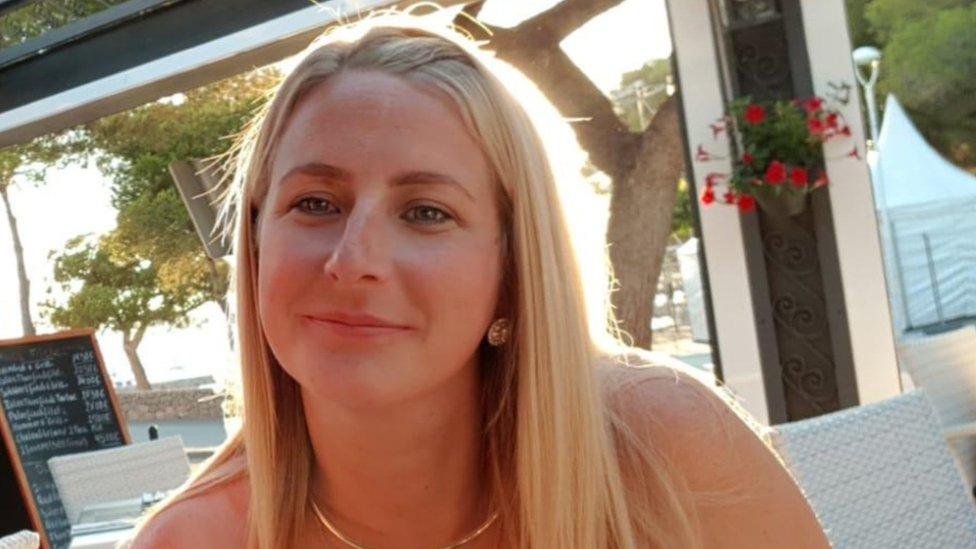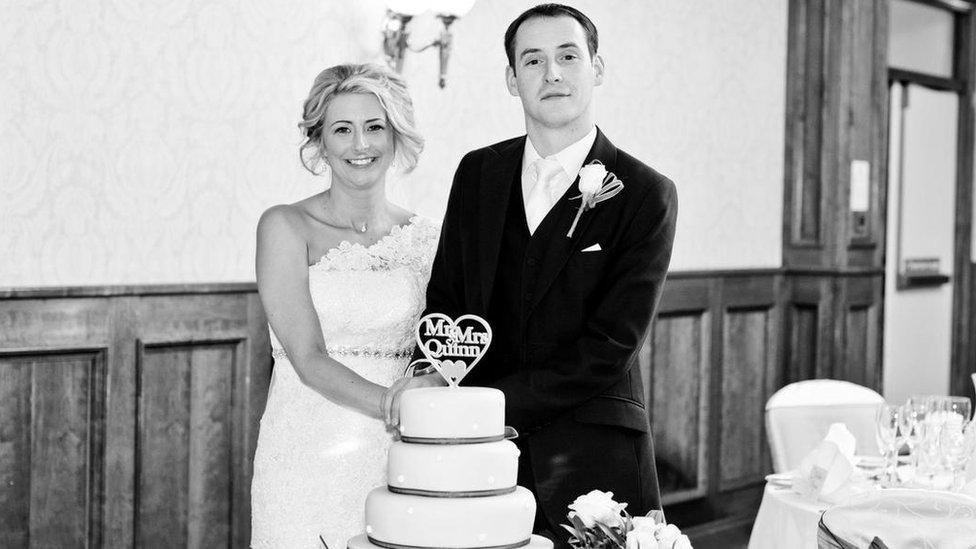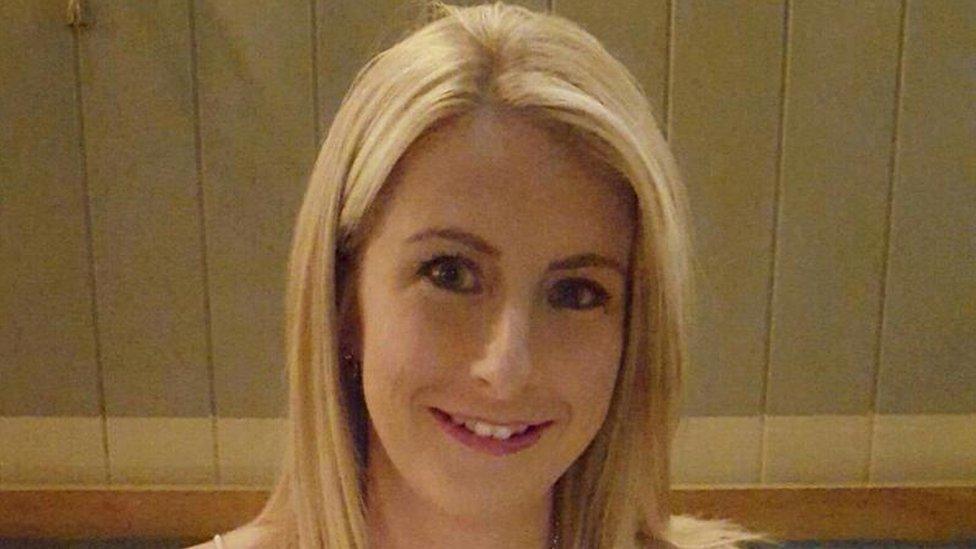Orlaith Quinn: Psychiatrist 'did not think woman was suicide risk'
- Published

Orlaith Quinn, 33, died in the early hours of 11 October 2018
A psychiatrist who examined a woman who took her own life in hospital did not believe she was an active suicide risk, an inquest has heard.
Orlaith Quinn, 33, died in the early hours of 11 October 2018 at Belfast's Royal Jubilee Maternity hospital.
Less than 48 hours earlier, she had given birth to her third child.
While in hospital, Mrs Quinn told family members she had attempted to take her own life three times, five days before her daughter was delivered.
In his evidence to the inquest, her husband, Ciaran Quinn, said that his wife's behaviour while in hospital changed the day after their daughter was born.
He told the coroners' court that his wife was "extremely tired, but when she put her head on the pillow she jumped up immediately".
He said what happened next in terms of her words and actions and behaviour was something he had never seen in the 17 years he had been with her.
Mr Quinn added that she was "manic, uncontrollable, loud-speaking, irrational and would not listen to reason".

Mrs Quinn's husband Ciaran said his wife's behaviour while in hospital changed the day after their daughter was born
He also said she was concerned that there was something wrong with their baby, before revealing that five days previously she had attempted to take her own life and had lost consciousness.
The coroner's court heard Mrs Quinn was assessed by a psychiatrist after she had disclosed her previous suicide attempts to her family.
Dr Robert Boggs from the Belfast Health Trust's psychiatric assessment team saw Mrs Quinn on 10 October 2018.
He said that during his assessment Mrs Quinn "did not observe evidence of psychosis" and that "she didn't have any current suicidal ideations at the time".
He said that his working diagnosis was "obsessional neurosis" and that he also made the "differential diagnosis of postpartum psychosis".
Referring to his entry in the patient notes, he said "that could not be ruled out one day postpartum".
Dr Boggs went on to outline that he discussed a care plan with Mrs Quinn's husband and mother and that it was noted one of them would stay with her.
He added that he considered his plan was sufficient and that a review would take place the following morning.
He said he did not believe that Mrs Quinn was an "active suicide risk", and that he was reassured by the fact that she had told others about her concerns.

Mrs Quinn had given birth less than 48 hours befoe her death
The psychiatrist said he was further reassured that her husband was able to stay with her overnight to provide some additional support.
Dr Boggs told the inquest "it remains his profound regret" that Mrs Quinn died before she reached that appointment the next day, when a further assessment would have taken place.
He said that Mrs Quinn's proposed care plan lacked details in terms of observations that were needed, and what was looked for from the midwifery team.
Dr Boggs referred to a term known as "watchful waiting" which was in Mrs Quinn's treatment plan.
He added when he used this term he presumed this would have been understood by the maternity nurses.
He told the court he had "reflected" on this since Mrs Quinn's death and now appreciated the term may have meant more to members of the psychiatric team, as opposed to members of the maternity team.
Dr Boggs also referred to the process of handing over his assessment and care plan to staff on the maternity ward and said he had had to handover on multiple occasions.
He added that while he was content to do this, he felt the lack of a single handover point was unhelpful for ensuring continuity of care.
The inquest continues.